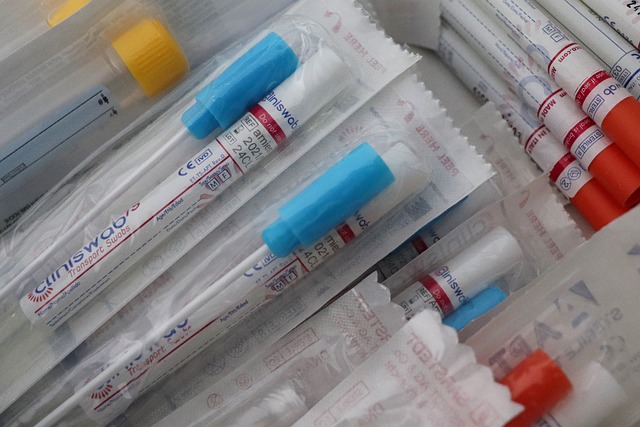Cholesterol plays a dual role in health, being essential for cell membranes and hormone production but also linked to cardiovascular risks like atherosclerosis. In the UK, monitoring cholesterol levels through general health blood tests is vital for heart disease prevention, with the National Health Service (NHS) advocating for this as part of a proactive healthcare strategy. These tests measure total cholesterol, LDL (bad) and HDL (good) cholesterol, and triglycerides, helping to assess an individual's risk profile. The NHS recommends that adults aged 40 to 74 take these tests every five years, with more frequent screenings for those at higher risk. The procedure involves a simple blood test, with results reported in millimoles per litre (mmol/L); target levels are below 5 mmol/L for total cholesterol and under 3 mmol/L for LDL cholesterol for those without cardiovascular disease history. Higher HDL levels are beneficial, exceeding 1 mmol/L. By understanding and managing cholesterol levels through regular screening as part of the general health blood test UK, individuals can contribute to their cardiovascular health and support the NHS's broader public health objectives, aiming to prevent cardiovascular events and promote overall well-being.
Maintaining general health through regular blood tests is a cornerstone of preventive healthcare, particularly when it comes to monitoring cholesterol levels. This article delves into the importance of understanding cholesterol and its role in overall health, providing a comprehensive guide to cholesterol level testing with blood tests in the UK. We will navigate through interpreting your results, empowering you to take proactive steps towards heart health. Understanding the nuances of cholesterol and its indicators within your blood can be a pivotal step in managing your well-being.
- Understanding Cholesterol and Its Role in Overall Health
- The Comprehensive Guide to Cholesterol Level Testing with Blood Tests in the UK
- Interpreting Your Blood Test Results: What Your Cholesterol Levels Say About Your Health
Understanding Cholesterol and Its Role in Overall Health

Comprehensive understanding of cholesterol is pivotal for maintaining general health. Cholesterol, a waxy substance produced by the liver and found in all cells of the body, plays a key role in cell function, helping to maintain membrane flexibility and fluidity, as well as facilitating the production of hormones and bile acids necessary for fat digestion. However, its presence within artery walls can lead to plaque buildup, potentially resulting in cardiovascular diseases. Regular blood tests in the UK are instrumental in tracking cholesterol levels, offering insights into an individual’s heart health risk profile. These tests measure total cholesterol and distinguish between low-density lipoprotein (LDL) – often referred to as ‘bad’ cholesterol, which can block arteries – and high-density lipoprotein (HDL), or ‘good’ cholesterol, which helps remove excess cholesterol from the bloodstream. By monitoring these levels through a simple blood test, individuals can take proactive steps towards maintaining optimal cardiovascular health, a cornerstone of overall general health in the UK. Understanding one’s cholesterol profile is thus a critical component of personalised healthcare strategies.
The Comprehensive Guide to Cholesterol Level Testing with Blood Tests in the UK

In the United Kingdom, maintaining a healthy balance of cholesterol is paramount for overall cardiovascular health and general well-being. Cholesterol level testing via blood tests serves as an indispensable tool in this regard, offering insight into an individual’s lipid profile. The National Health Service (NHS) provides comprehensive guidelines on when and how to undergo these tests, which measure total cholesterol, LDL (low-density lipoprotein or ‘bad’ cholesterol), HDL (high-density lipoprotein or ‘good’ cholesterol), and triglycerides. These measurements are vital in understanding an individual’s risk for heart disease and stroke. In the UK, adults aged 40 to 74 are typically advised to have their cholesterol checked every five years as part of the general health blood test recommendations. This practice enables early detection and management of potential cardiovascular issues, aligning with the broader public health objectives of maintaining a healthy population. For those with specific risk factors, such as family history, smoking, or diabetes, more frequent monitoring may be necessary. The process is straightforward, with a healthcare professional taking a blood sample, usually from the arm, which is then sent to a laboratory for analysis. Understanding the results and interpreting them in the context of personal health goals, dietary habits, and lifestyle choices is key to implementing effective strategies for cardiovascular health management.
Interpreting Your Blood Test Results: What Your Cholesterol Levels Say About Your Health

Understanding your cholesterol levels through a blood test is a pivotal step in maintaining your general health, as these tests provide insights into your cardiovascular risk profile. In the UK, the National Health Service (NHS) offers cholesterol screening as part of the general health blood test UK for individuals who may be at higher risk of heart disease or stroke. The results are typically expressed in millimoles per litre (mmol/L), with total cholesterol levels generally considered healthy when below 5 mmol/L. Within this total, low-density lipoprotein (LDL) cholesterol, often referred to as ‘bad’ cholesterol, should ideally be under 3 mmol/L, especially for those with no history of cardiovascular disease. High-density lipoprotein (HDL) cholesterol, the ‘good’ form, is beneficial when levels are above 1 mmol/L. Elevated LDL and reduced HDL can increase the risk of plaque buildup in arteries, leading to atherosclerosis, which is a precursor to heart attacks and strokes. Regular blood testing allows for the monitoring of these levels over time, enabling healthcare professionals to tailor dietary and lifestyle advice or medical treatment to manage cholesterol effectively, thereby supporting your overall health and well-being.
Regular cholesterol level testing through blood tests is a cornerstone of maintaining general health in the UK. By understanding your cholesterol profile, you can take proactive steps towards heart health and overall well-being. This comprehensive guide has demystified the process, ensuring individuals are equipped to interpret their results effectively. Remember that monitoring your cholesterol levels is a vital aspect of your health journey, and with the information provided, you are now better positioned to make informed decisions about your health in conjunction with healthcare professionals. Staying informed about cholesterol’s role and staying updated through routine blood tests can significantly contribute to a healthier life.
